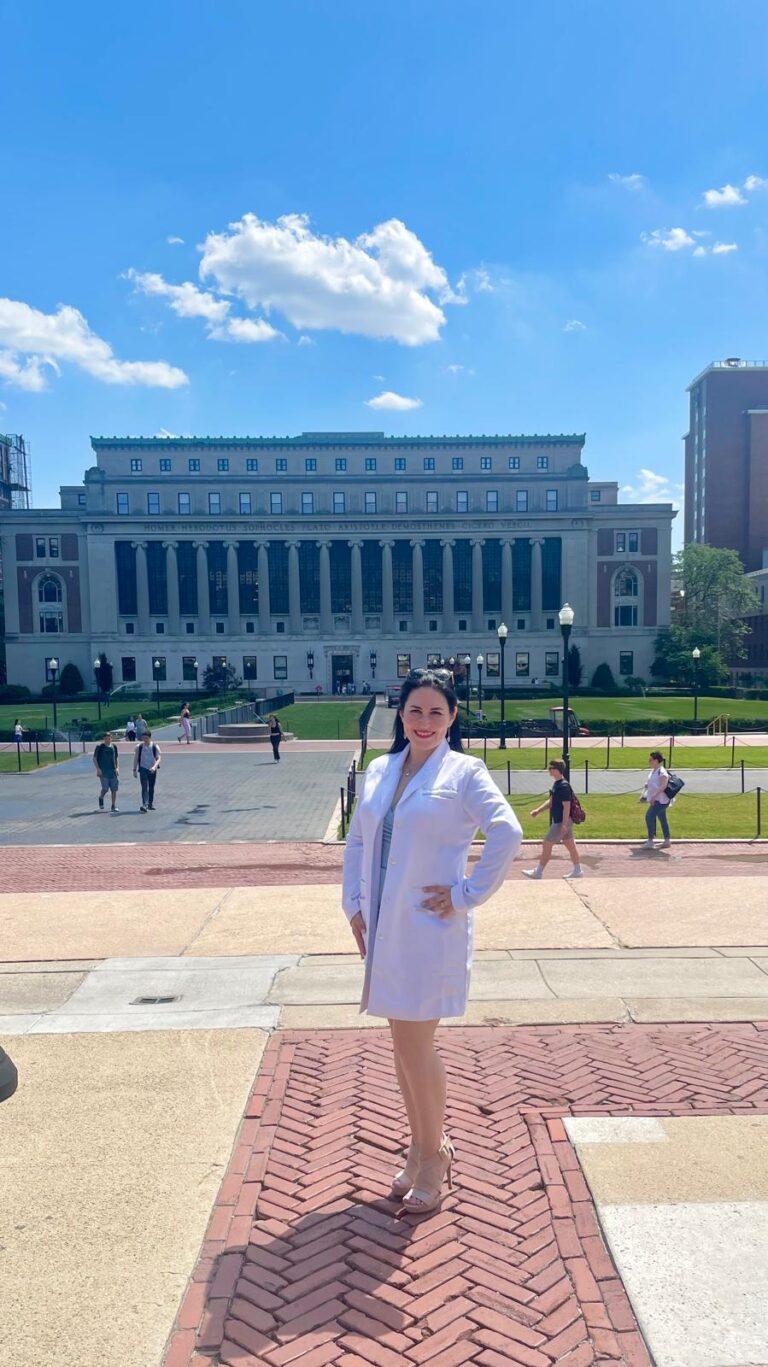By Dr. Andrea Benitez
Dentistry is a fascinating field, one that merges the precision of science with the artistry of aesthetics, all while requiring deep compassion for patient care. As a dentist, I am privileged to work at the intersection of these diverse elements. Every day presents a unique opportunity to improve not only the oral health of my patients but also their quality of life, self-esteem, and overall well-being.
The Science Behind Dentistry
At its core, dentistry is a science-driven discipline. Our knowledge of human biology, oral health, and disease management forms the foundation of everything we do. Advances in medical research continuously shape our understanding of oral health’s connection to systemic conditions such as cardiovascular diseases, diabetes, and even Alzheimer’s. As such, dentists are more than just tooth doctors — we are integral to the broader healthcare system, often acting as the first line of defense for detecting early signs of disease.
We have seen remarkable developments in dental technology that enhance both diagnosis and treatment. Digital X-rays, 3D imaging, and laser dentistry allow us to offer more accurate, minimally invasive care, improving the experience for our patients. But even with these technological advancements, the fundamental science behind oral health remains the same: prevention is always better than cure. Regular check-ups, cleanings, and good oral hygiene habits are key to preventing major health issues down the line.
The Artistry of a Beautiful Smile
While science ensures we maintain health, artistry allows us to restore beauty. Dentistry, particularly in the field of aesthetic and restorative care, is a craft that demands precision and a deep understanding of form, symmetry, and function. I have always been passionate about restoring my patients’ smiles, not just for aesthetic reasons but because a smile is one of the most powerful expressions of human emotion.
Whether it’s crafting a set of veneers, performing a complex crown restoration, or simply whitening a patient’s teeth, each procedure is an opportunity to help someone regain confidence. The joy that comes from seeing a patient smile freely after a procedure is immeasurable. And while many assume cosmetic dentistry is purely about looks, it often addresses functional issues, improving a patient’s ability to eat, speak, and live comfortably.
The Compassion Behind Care
Dentistry is also a profession deeply rooted in care and empathy. Many patients experience fear or anxiety about visiting the dentist, often due to past negative experiences. As healthcare providers, it is our responsibility to make them feel safe and comfortable. In my practice, I strive to create a welcoming environment where patients feel they are in good hands.
I believe that patient education is critical in alleviating fear. When patients understand the procedures they will undergo and how these benefit their health, they are more likely to engage actively in their treatment plan. Compassionate care means listening to patients, understanding their concerns, and tailoring our approach to meet their individual needs.
The Role of Preventive Dentistry
An essential part of modern dentistry is the emphasis on prevention. We are fortunate to live in a time where dental decay and disease can be largely prevented through routine care and good oral hygiene practices. Yet, many people still neglect regular dental visits, often waiting until they experience pain or discomfort. My advice to everyone is simple: make dental care a priority before problems arise.
Preventive dentistry includes routine cleanings, fluoride treatments, and early detection of gum disease, cavities, or misalignments. By catching these issues early, we can often avoid more complex, costly procedures in the future. Moreover, by educating patients about their role in maintaining their own oral health, we empower them to take control of their well-being.
Looking to the Future
The future of dentistry is bright, with emerging technologies promising to transform the way we practice. From AI-powered diagnostics to 3D printing for prosthetics, dentistry is on the cusp of incredible innovations that will improve patient care and treatment outcomes.
Additionally, the integration of personalized medicine into dentistry will allow us to tailor treatments to the specific genetic and biological needs of each patient. Imagine a future where dental treatments are not only designed based on general health practices but also on the unique makeup of an individual’s biology.
Conclusion
Dentistry is more than just a profession to me—it is a journey of continuous learning, artistry, and service. As dentists, we have the privilege of impacting our patients’ lives in profound ways, from improving their oral health to enhancing their confidence and overall happiness. With every smile I help restore, I am reminded of the unique blend of science, art, and compassion that defines this rewarding career.


